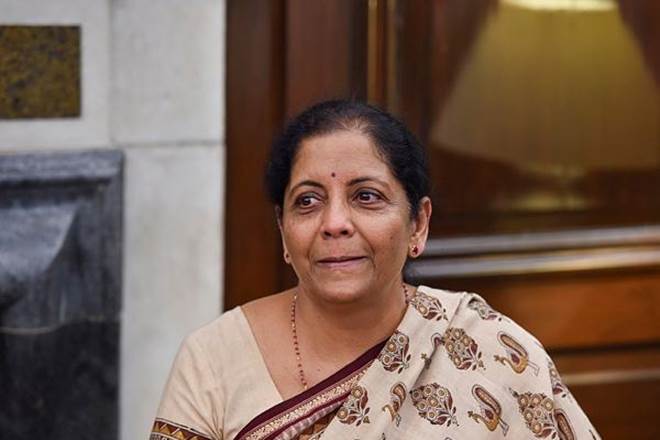By Sandeep Jhunjhunwala
Union Budget 2019 India: The Information Technology (IT) industry is currently going through a transition phase, as numerous new technologies in the form of artificial intelligence, cognitive computing, data science, machine learning, big data, data analytics, robotics, Internet of Things, blockchain etc are changing the rules of game for incumbent IT players. Having emerged as a global technological powerhouse and proven its core competencies in delivering both onshore and offshore services to clients worldwide, emerging technologies now offers an entirely new gamut of opportunities to IT firms in India in the form of changeover to automated platform-led approach from people-led business model. While the industry is passing through the winds of change, IT firms are also wrestling with game-changing regulations such as H-1B system changes, EU GDPR suite of laws, data localisation and protection laws etc, which have resulted in higher deployment and compliance costs.
As the Government holds that IT and youth are India’s two major assets, the industry waits for a booster shot in the upcoming budget. It is indubitable that Government initiatives such as Digital India campaign, Government e-market place, Atal Innovation Mission, higher allocation of fund for tech start-ups, Smart cities etc have facilitated the advancement of IT sector. A perfect mix of fiscal and monetary measures would help the Government tackle employment crisis, while maintaining the growth momentum in the sector.
Also read: Budget 2019: Can Modi 2.0 bring economy back on track? 5 key challenges before FM Nirmala Sitharaman
One of the strategies listed out in the National Policy on Software Products (NPSP) 2019 is that Indian software product companies would be allowed to set off tax payable, if any, against the investments made (on an accrued basis) in R&D of indigenous software products. The income tax laws must reflect provisions for R&D tax credit on similar lines. Keeping in mind the long-term commitment of the Government to rationalize various tax incentives, an extension of the sunset clause for income tax holiday under Section 10AA of the Income Tax Act, looks to be a need of the hour, especially at a time when it’s been reported that as many as 200 US corporations are looking to shift manufacturing bases out of China. An extension would also result in a revival of stakeholders’ interest in SEZs and give an uplift to India’s ‘Make in India’ propaganda. International Financial Services Centre (IFSC) were introduced through the SEZ Act. However, unlike units in SEZs, tax exemptions continue for IFSCs and Minimum Alternative Tax (MAT) is applicable at a concessional rate of 9 percent. The Government must draw up a new SEZ policy on the line of incentives provided to IFSCs.
Even as issues such as admissibility of Equalisation Levy for tax credit continue to plague the sector, India’s aggressive pitch for “significant economic presence” principle to give more taxing rights to market-driven economies has unnerved the industry. There is a definite need to align India’s SEP tax version with the proposed consensus of G20/ OECD and defer its implementation till a global consensus is formed on taxation of digital economy. At a time when India is looking at simplifying and consolidating its labour laws, taxation in secondment/ deputation arrangements, a common practise among multinational companies, continue to be a relentless debate. The Government must aim at clarifying and reducing the tax baggage on international secondments. As far as taxability under Employee Stock Option Plan is concerned, there is a certain need to postpone the incidence of taxability of shares from the date on which the shares are exercised to the date on which an individual becomes absolute owner of the shares. The indirect transfer tax provisions are another area in need of refinement.
Also read: Budget 2019: PFRDA proposes these 2 changes in Atal Pension Yojana
Given the relevance of new age technology business, it is imperative that Government revives “front-end” tax incentives such as Section 35 (2AB) for at least 5 more years and include IT/ IT enabled Services as eligible business for this added benefit. Sec 35CCD may be overhauled to promote expenditure on skill development training and revive incentives on re-skilling and up-skilling the IT workforce. The Government could also consider revitalizing tax holiday under Section 80-IB (8A) for companies that dedicate themselves to research and development in niche technology services sector. The historic tax reform legislated by US that cut corporate tax rate from 35 percent to 21 percent is noteworthy and it is imperative that India reassesses its tax rate to maintain competitiveness in the global market. Rolling back the salary cap or increasing present emolument threshold limits for claiming deduction under Section 80JJAA of the Income Tax Act is another aspect to look at. Given their fast obsolescence due to rapidly changing technology, computers and software should be given the advantage of depreciation at 60 percent.
In terms of tax administrative reforms, it has been the experience that income tax refunds on account of appellate orders, revised returns and rectification applications remain pending for long period of time. Expeditious verification and issuance of refunds may be encouraged to avoid hardship to taxpayers and promote a culture of tax compliance. Similarly, the Income Tax Act should provide clear timelines for disposal of appeal proceedings at all levels. In addition to achieving process perfections in e-assessment, the concept of block assessment may be introduced to assess transactions such as royalty, intra-group services, interest payments, guarantee, loan transaction etc which are recurring in nature for companies operating in IT sector. The Government must aim at improving the attractiveness of Alternate Dispute Resolution mechanism like safe harbour by relooking at thresholds, coverage of transactions and rates itself.
Tough policy actions and reforms taken during the last term of the Government should continue to deliver benefits and be augmented by new initiatives. Domestic policy stability and an uncertain global environment would undeniably encourage foreign investors to positively reappraise their India positions. Understandably, if a clear road map is laid out early in the current tenure of the Government, the desired outcomes could be achieved. India Inc waits to see the Government’s strong mandate in Budget 2019.
The author is Director, Nangia & Co LLP. The views expressed are the author’s own.
For latest coverage on Budget 2019-20 log on to financialexpress.com. We bring you full coverage of Union Budget 2019 Live. Stay Connected.
Get live Stock Prices from BSE and NSE and latest NAV, portfolio of Mutual Funds, calculate your tax by Income Tax Calculator, know market’s Top Gainers, Top Losers & Best Equity Funds. Like us on Facebook and follow us on Twitter.














